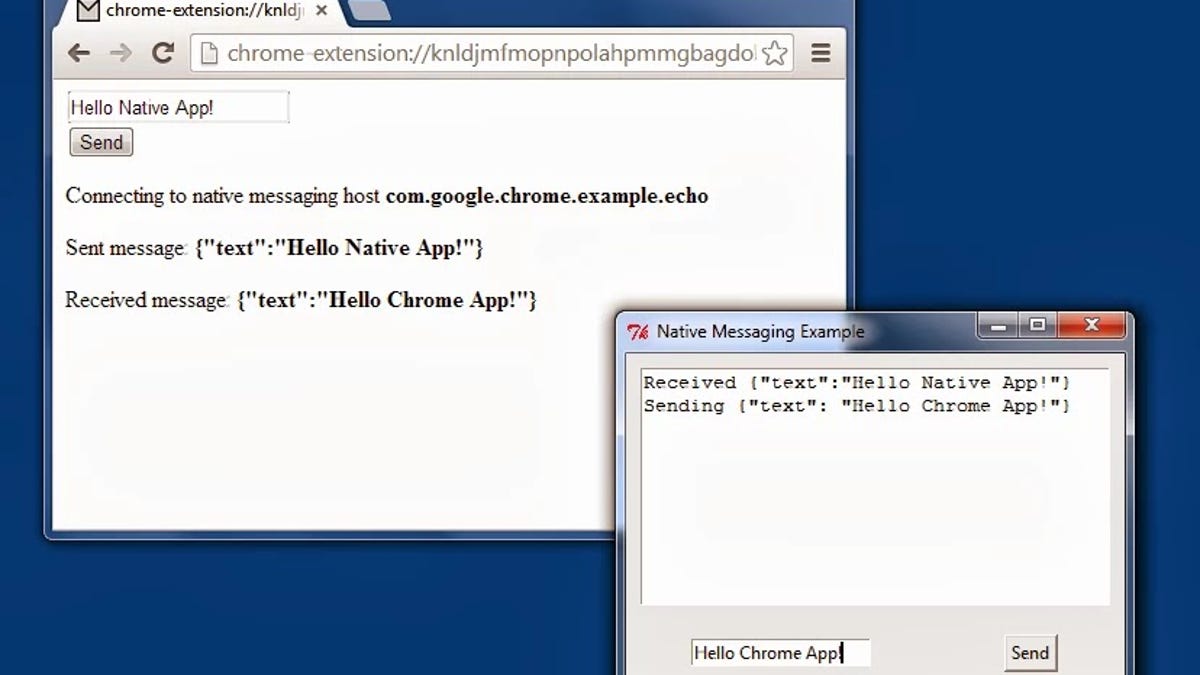Google paves over hole left by Chrome plug-in ban
Programmers who used plug-ins to invoke third-party software like password managers get a replacement technology built directly into Chrome 29.

Google has added a new feature to Chrome to help programmers who relied on soon-to-be-banished browser plug-ins to call upon the services of a third-party program.
The Native Messaging interface will let programmers do things like trigger a password management program, said Google programmer Sergey Ulanov in a blog post Tuesday.
The interface arrived with Chrome 29, Ulanov said, for Windows, Linux, and OS X.
Starting in January, Google is phasing out support for the Netscape Plugin Application Programming Interface (NPAPI), which lets third-party software augment a browser's built-in abilities.
Google will permit several top plug-ins that use NPAPI to run for an unspecified period of time, but the top plug-in, Adobe Systems' Flash Player, sidesteps the issue on Chrome. That's because Google and Adobe worked to build Flash directly into Chrome using a newer interface, Google's Pepper (PPAPI).
"Meanwhile, NPAPI's 90s-era architecture has become a leading cause of hangs, crashes, security incidents, and code complexity. Because of this, Chrome will be phasing out NPAPI support over the coming year," Chrome security engineer Justin Schuh said in September in an announcement.

